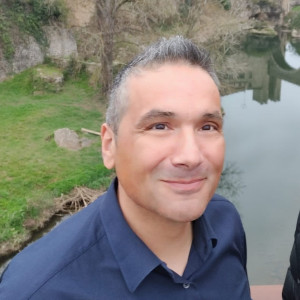Capítulos
La sección de Writing del TOEFL, que dura aproximadamente 50 minutos, mide tú capacidad para comunicarte de manera efectiva en inglés y también mide tu habilidad para sintetizar información y organizar tus ideas bajo presión. Es fácil que subestimes esta parte del examen y no consideres el tiempo y se te pase volando. Sin embargo, con las estrategias adecuadas y una estructura clara, puedes asegurarte de cumplir con los requisitos y tener las respuestas esperadas. Sigue leyendo para descubrir las claves del éxito en el Writing del TOEFL.
La sección consta de dos tipos de tareas: la tarea integrada y la tarea independiente. Cada una requiere habilidades específicas, pero ambas son evaluadas en función de tu habilidad para estructurar tus ideas, desarrollar argumentos sólidos y utilizar un vocabulario adecuado.

Tipo de preguntas
1. Tarea Integrada - Integrated Writing Task.
En esta primera tarea, deberás leer un artículo, escuchar una conferencia relacionada con el mismo tema y, finalmente, escribir un ensayo de al rededor de 280 a 300 palabras que explique cómo la conferencia contradice o desafía los puntos mencionados en el texto.
El artículo que leerás tiene siempre cuatro párrafos. Tiene una introducción y tres párrafos del cuerpo. La introducción presenta el tema general y el punto principal. Cada párrafo del cuerpo describe un argumento específico. Tienes tres minutos para leerlo y tomar notas. Después escucharás la clase. El artículo volverá a aparecer cuando termine la clase.
La clase trata sobre el mismo tema que el artículo y dura unos dos minutos. Sólo puedes escucharla una vez, así que toma notas.
Al principio de la clase, escucharás la idea principal del profesor. El resto de la conferencia consiste en tres argumentos específicos. Éstos responden directamente a los tres argumentos mencionados en la lectura (y en el mismo orden).
Ejemplo
Artículo:
The idea of colonizing asteroids has long been a topic of fascination and speculation in science fiction and popular culture. In recent years, however, the idea of asteroid colonization has become more realistic and feasible, thanks to advances in technology and space exploration. There are many potential benefits to colonizing asteroids, and these benefits make the pursuit of asteroid colonization a worthwhile endeavor.
One of the most obvious benefits of asteroid colonization is the scientific potential. Asteroids provide a unique environment for scientific research due to their small size, low gravity, and lack of atmosphere. Research conducted in these environments could provide valuable insights related to many different academic fields. Not only that, but asteroids could also serve as stepping stones for future missions to other destinations in the solar system, such as Mars or the moons of Jupiter and Saturn.
Another benefit of asteroid colonization is the potential for economic growth and development. Natural resources mined on asteroids could create new industries and job opportunities, which would generate significant revenue for both governments and private companies. Asteroid mining could also reduce the need for resource extraction on Earth, which could help to preserve our planet’s natural environment.
In addition to economic benefits, asteroid colonization could also have important implications for the long-term survival of humanity. Asteroids could serve as potential refuge for humans in the event of a large-scale disaster on Earth, such as an asteroid impact or a nuclear war. Even if such a disaster doesn’t occur, asteroids could provide valuable information regarding the origins and evolution of the solar system, and how life emerged here in the first place.
Clase:
Ejemplo de respuesta:
The reading and the lecture are about the possibility of starting colonies on asteroids. While the author feels that this is a good idea due to scientific benefits, economic benefits and the long-term survival of humans, the lecturer does not believe that the author’s claims are correct. His position is that it might not be a good idea to colonize asteroids.
First of all, the author argues that asteroids are a great environment for scientific research because they are small, with low gravity and no atmosphere. Moreover, the article notes that they could be a way to start missions to more distant locations in the solar system. This argument is challenged by the lecturer. He says that we just don’t know enough about asteroids to be sure of their scientific value. We don’t know how many exist, or about conditions on their surfaces so it is difficult to really predict the scientific benefits of colonizing them.
Second, according to the article, there could be great economic benefits of colonizing asteroids because they contain natural resources. Mining the resources could be very profitable, and reduce the need to mine them on Earth. In contrast, the lecturer notes that we don’t know exactly how many resources asteroids contain, nor how much they would be worth back on Earth. As a result, it isn’t clear if mining in space is more cost-effective than doing so on Earth.
Finally, the author claims that colonies on asteroids could ensure the long-term survival of humanity. To be more specific, we could survive on them if a war or disaster affects the Earth. In contrast, the lecturer’s stance is that human settlements would have to be designed to deal with the unique challenges of the gravity found on asteroids. These challenges could make living on them extremely uncomfortable and dangerous in the long run.
2. Escritura para debate académico - Writing for an Academic Discussion task
En esta segunda parte es un case de pregunta publicada en un grupo de debate universitario o en los anuncios de la universidad. Leerán pregunta formulada por un profesor y luego leerá dos respuestas formuladas por estudiantes. Tu trabajo consiste en leerlo todo y responder a la pregunta. Deberán escribir unas 120 palabras. Tendrán de 10 minutos para hacerlo todo.
Ejemplo
Your professor is teaching a class on political science. Write a post responding to the professor’s question. In your response, you should
- express and support your personal opinion
- make a contribution to the discussion in your own words
An effective response will contain at least 100 words. You have ten minutes to write.
Professor: Today we’re going to talk about the debate between economic growth and protecting the environment. Economic growth creates new jobs and gives people money they can use to improve their lives. On the other hand, if we protect the environment it can be enjoyed both by ourselves and future generations. If you had to choose between prioritizing economic growth or protecting the environment, which one would you choose. Why?
Alex: I would prioritize the environment. We only have one planet and if we don’t take care of it, we won’t have pleasant lives in the future. Economic growth can be important, but not at the expense of the environment. I think we need to shift towards more environmentally-friendly economic practices, such as investing in renewable energy and promoting environmentally-friendly technologies. We’ll all live much healthier lives if the world around us is clean.
Maggie: While I agree with Alex that environmental sustainability is important, I think that economic growth is the only way to solve many of the social and economic problems we face. We need a strong economy to create jobs, reduce poverty, and improve standards of living. Not only that, but when companies grow stronger and more profitable, they can develop new technologies that solve our environmental problems.
Ejemplo de respuesta
"This is a challenging topic, but I think we should prioritize the environment at this time. I strongly agree with Alex’s idea thatour lives will be unpleasant if we focus entirely on economic growth. I would add that if the environment is damaged by industrial development we’ll all be more likely to suffer from serious ailments like cancer and lung disease. These sorts of illnesses can be a real strain on our medical systems. Maggie raised the relevant point that it’s possible that profitable companies will someday solve all of our problems using new technology, but she doesn’t mention that they might arrive far too late to be of use. For example, it could take decades for an innovative company to create a clean energy source, but people are suffering from environmental catastrophes right now."
Ambos ejemplos y más para practicar los puedes encontrar acá para hacer siguiendo nuestras estrategias de a continuación!
Estrategias de Writing
1. organización: Tener una estructura clara y repetitiva te ayuda a organizar tus respuestas de forma eficiente. Usa frases de transición y menciona siempre las fuentes de información, ya sea del artículo o la clase.
Introducción: "According to the reading, [menciona el tema principal del artículo]."
Primer párrafo: "The article mentions that [punto específico]. This argument is challenged by the lecturer, who claims that [respuesta del profesor]."
Segundo párrafo: "Additionally, the author suggests [punto adicional del artículo], but the professor affirms [respuesta de la clase]."
Conclusión: "Finally, the author contends that [último punto] to which the professor states [resumen de la idea]."
En los dos ejemplos de respuestas esperadas hemos puesto en negrita aquellas palabras y frases que son clave en la estructura y organización de la escritura en el TOEFL. Presta atención a cómo son repetitiva entre ambos tipos de preguntas ya que serán clave para replicarlas en tu prueba.
2. Utiliza conectores y transiciones: Usar conectores como "however," "additionally," "on the other hand," y otros ayudará a hacer que tu respuesta fluya de manera lógica y clara. También puedes usarlos para contrastar o apoyar puntos en ambas tareas. Recuerda no ser repetitivo con estas mismas palabras e ir variando dentro del texto.
Conectores útiles para Integrated Writing Task:
- According to the reading: Introducir un argumento o hecho presentado en la lectura.
- The article mentions that: Señalar detalles específicos o puntos clave del artículo.
- However: Indicar una contradicción o diferencia entre la lectura y el audio.
- This argument is challenged by the lecturer: Introducir el punto de vista del profesor que contradice al autor.
- He claims that: Presentar una afirmación directa del profesor.
- Moreover: Añadir más detalles o información complementaria del audio.
- Additionally: Introducir un segundo punto o argumento que apoya el del profesor.
- On the other hand: Mostrar un punto de vista opuesto o contradictorio.
- In contrast: Comparar dos ideas opuestas, generalmente entre la lectura y el audio.
- Finally: Introducir el último punto del pasaje o de la lectura.
- The lecturer also points out that: Señalar un argumento adicional del profesor que refuerza su postura.
- To sum up: Resumir y concluir las diferencias o similitudes entre la lectura y el audio.
Conectores útiles para Discussion Task:
- I strongly agree with: Indicar claramente tu postura a favor de lo que dijo otro estudiante.
- In my opinion: Introducir tu propia opinión o punto de vista en la discusión.
- For instance: Dar un ejemplo que apoye tu opinión o el argumento del estudiante.
- While it is true that: Reconocer una parte del argumento opuesto antes de refutarlo.
- Furthermore: Añadir más información que apoye tu argumento o refuerzo a la idea anterior.
- Nevertheless: Introducir una objeción o limitación a un punto que se acaba de mencionar.
- On the contrary: Exponer una idea opuesta de manera fuerte.
- To illustrate: Presentar un ejemplo claro para apoyar un argumento.
- Thus: Indicar una consecuencia lógica o un resultado basado en lo que se ha dicho.
- As a result: Introducir una consecuencia directa de un hecho o argumento.
- In conclusion: Resumir tus argumentos y llegar a una conclusión final.
- On the whole: Introducir una declaración general o una visión global después de discutir puntos específicos.
Recursos
Resumir con IA:












